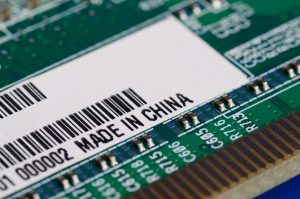Why has the Chinese government become antagonistic toward technology companies in a way that’s not yet happened in Europe and the United States? While the power of modern technology companies has become manifest during the pandemic and in the context of the January 6 uprising in the United States, the U.S. government has yet to subject the leadership of Facebook or Amazon to serious interrogation, unlike in China.
Noah Smith sees the shows of force as being about a broad effort to shift societal resources away from the consumer sector and toward the defense sector. Smith suggests it is possible that Chinese authorities have doubts as to the ability of techno-billionaires to win consistently at anything other than securing a market. The success of massive tech companies in both the United States and China may depend more on IP, first mover advantage, and the ability to control the market than on any enduring capacity for innovation.
By this logic, China is less interested in allowing the market to create incentives for technology development, and more interested in directing that investment in areas that will have military and industrial spinoffs. The primary resource that technology companies use is educated, highly skilled workers, and while human capital reproduces itself in ways different than other kinds of resource input, it’s still arguably a waste to direct that effort toward social networks rather than more concrete innovations. But this is a difficult and uncertain road to tread, especially given the complexity of the high technology labor force and the degree to which innovation and production remain a transnational affair.
Lillian Li develops this argument somewhat, pointing out that China’s underdeveloped regulatory institutions are in many ways being built on the fly to manage technology innovation, and that it’s perhaps premature to expect a fully developed technology strategy. Indeed, the future construction of intellectual property law in China will play an enormous role in the relationship between the Chinese Communist Party and the lords of technology, with the latter pushing for frameworks that enable them to continue to dominate markets. Nitin Pai offers a slightly different rationale: The CCP is worried about power-brokers that it cannot control, with special attention on billionaires who control media. These, Pai suggests, could play out narratives counter to that of the CCP, or at the very least offer space for ideological competition.
Micromanaging a technology ecosystem is enormously complex and difficult, even for a bureaucracy the size of the Chinese government. And as with all industrial policy, it’s dangerous; resources may end up in unproductive parts of the economy in a vain attempt to capture innovation, workers may not want to comply with career paths that support “national greatness,” and the benefits of international cooperation may be lost. The world’s most successful media and technology companies have established themselves in spaces that regulators could not envision existing 20 or 30 years ago; there is always danger in a government’s decision to choose a direction for a national economy.
































